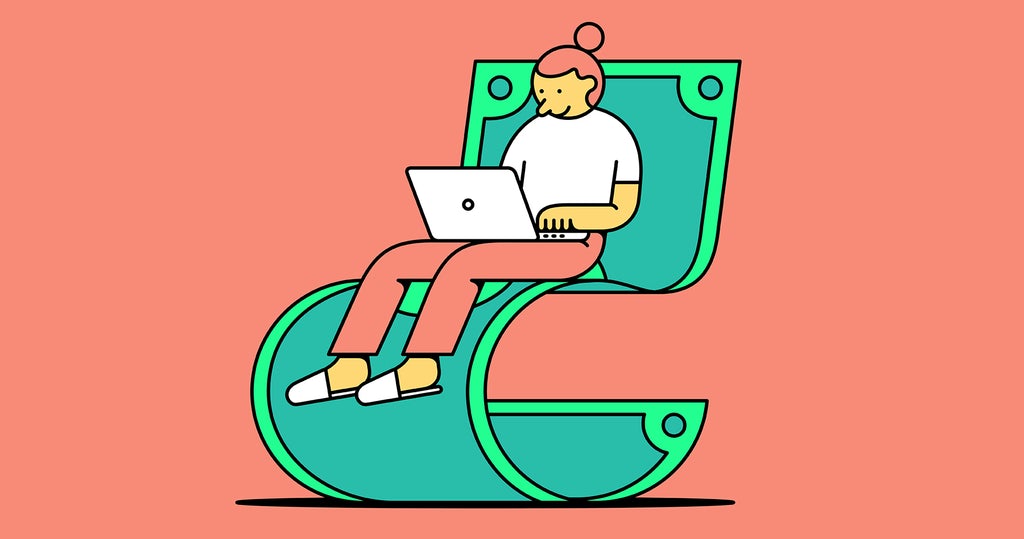
Work from Home – A Boon or a Bane?
The post Work from Home – A Boon or a Bane? appeared first on The Economic Transcript.

Aren’t we all a little exasperated of the ‘Work from Home’ culture that has been enforced upon us ever since the horrific COVID-induced pandemic led work experts to hunch over their laptops in the comfort of their homes? Well, it is certainly not like the ball will be in our court anytime soon. It is quite suspected that this infamous practice might continue to last and so will the effects of the same entail inevitably. In this article, we have narrowed down the different effects endured by various businesses owing to the COVID-19 crisis and what psychological impacts it has had on work professionals.
Before the ongoing pandemic managed to strike us down, the concept of WFH was as good as a fantasy for all. However, in the present time, this awful predicament has forced most businesses to adopt the structure of ‘Work from Home’. It has modified the workplace to a large extend. As a result, many companies encouraged their employees to work remotely. This included the replacement of board room meetings to video calls and instant messaging.
Over and above that, some globally recognized establishments have arrived at the decision of allowing their respective workers to work from home for good. In spite of taking this action, large classes of the labour force are not able to work remotely because of which renowned experts suggest that these growing enlargements have a high possibility of developing major complications concerning the business and the economy as a whole.
Not long ago, Meta announced a major change in the pattern of their working operations. The tech company permitted as much as half of its staff members to work from home on a permanent basis. A similar measure was adopted by Twitter as well. The impact suffered by businesses and the financial system is mixed. While remote working has witnessed a considerable increase in employee productivity, the concern lies in the part where co-workers encounter issues related to creativity that may bring down team cohesion.
Further, let us check out what are the psychological impacts on work professionals adapting to WFH. A wide range of research studies proves that working from home for a long period of time is associated with not only loneliness but also anxiety, stress, and pressure along with the detection of severe depression. It is often noticed that isolation and stress are differentiated by a thin line between work and home obstacles. Some possess the skills to ace it, whereas others struggle to cope with it.
Loneliness and isolation
This mere transition from an office packed with workers to spending days only in the acquaintance of oneself has surely stirred up a feeling of loneliness and isolation among many. In addition, not all individuals are habitual to work without interacting with their fellow colleagues. The socialization, physical and mental contact with them could be profoundly missed and cannot be replaceable with virtual conversations, thus leaving people in a state of solitude which is very harmful to their well-being.
Anxiety, stress, and pressure
From tensions revolving around work to meeting an appropriate performance criterion, muddling through routine, and several other tiresome activities while tied down in the sharp tentacles of COVID-19 have left employees in a state of anxiety and pressure. For instance, academic studies of their children have put an extra cause of apprehension on working parents.
Stronger emotional health
One advantage is that employees receive a plethora of benefits by working from home. To name some – they get extra hours of sleep; spend more time with their kinfolks, exercise for good health, spend quality time honing their skills, and even inculcate new hobbies. Many people rightly take pride in utilizing this precious time wisely along with learning to balance the same with their office hours.
Flexible working hours
Another advantage of working remotely is employees’ ability to work within hours that are compatible with them. It can be earlier or later in the day, centered on their suitability. Flexible working hours are preferred by women who are juggling both their professional and personal lives in order to ace both parts of their lives.
Thus, having considered all the above points, it is clear that each individual has his or her own different approach to managing ‘Work from Home’. One cannot be too sure if this practice will remain to be a feasible option or the new normal for future generations to come.
Written by- Miloni Chheda
Edited by- Isha Mehrotra
The post Work from Home – A Boon or a Bane? appeared first on The Economic Transcript.
CHICAGO — Cardi B was part of Bad Bunny’s Super Bowl halftime show. What she did exactly, well, that turned into a perplexing question for two major prediction markets. At least one Kalshi trader filed a complaint with the Commodity Futures
The operator of roughly 180 Eddie Bauer stores across the U.S. and Canada has filed for Chapter 11 bankruptcy protection, blaming declining sales and a litany of other industry headwinds. The bankruptcy filing marks the third time in a little over
LOS ANGELES — The world’s biggest social media companies face several landmark trials this year that seek to hold them responsible for harms to children who use their platforms. Opening statements for the first, in Los Angeles County Superior Court,
